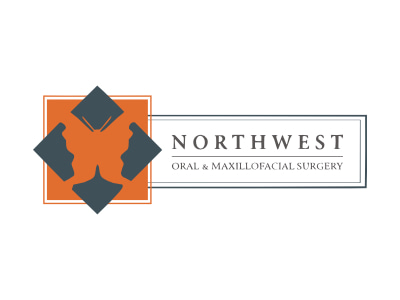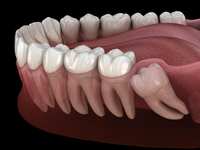Wisdom teeth are often problematic because the jaw simply isn’t big enough to adequately accommodate them after they erupt. This, in turn, can cause the teeth to emerge at odd angles or just not erupt within the mouth at all, each of which can cause some major issues. Because of this, dentists typically monitor wisdom-teeth development via X-rays and then make the decision on whether or not to extract them as a patient enters their later teenage years. If extraction does occur, it’s usually during this time period before the tooth root can fully develop. If the wisdom teeth aren't believed to be a problem, then they won't be extracted. Hence, many people enter their adult years with their wisdom teeth still intact. However, adults under the perception that wisdom-teeth extraction is only an adolescent thing are mistaken.
In fact, many adult patients experience problems later in life that may necessitate wisdom-teeth removal. Here’s a look at some of the reasons why wisdom-teeth removal may be necessary for adults.
- Pain: In many cases, the wisdom teeth are asymptomatic, or without any symptoms, until people reach a certain age. Then, like flipping a switch, they experience pain or discomfort in the mouth where the wisdom teeth are located. If this pain doesn’t subside, removing the wisdom teeth is often the only way to resolve the issue. What causes this pain? It can stem from a variety of issues, such as pressure on tooth nerves and cavity formation, among others.
- Infection: When wisdom teeth erupt through the gums, it’s not uncommon for them to only do so partially. When this occurs, a pocket can form along the gum line which can fill with plaque, bacteria and food debris. While proper brushing and flossing can help minimize buildup, keep in mind that your wisdom teeth are the most difficult teeth in the mouth to reach, which can make this a challenge. It’s possible that a good dental cleaning may be able to reverse such issues, but often it’s better just to remove the wisdom teeth to avoid any further complications — especially if infection is a recurring issue. Some signs of infection are pain, swelling in the face and jaw, bad breath or taste, and difficulty chewing.
- Decay: As mentioned above, it’s hard to adequately brush and floss wisdom teeth because of their far-back location within the mouth. Not helping this is the fact that wisdom teeth are often crowded by other teeth, making it even more difficult to clean them. Because of this, cavities are common among wisdom teeth. While fillings can be administered (albeit uncomfortably for the patient due to the tooth location), many dentists advise patients on having the teeth removed altogether. If decay is significant enough, a dentist may also have to remove affected neighboring teeth.
Do My Wisdom Teeth Need to be Removed?
Though recovery times may be a bit longer for adults, you’re never too late to have your wisdom teeth extracted. However, we do advise seeing your dentist or oral surgeon at the first sign of a problem with your wisdom teeth and not putting off treatment. Putting off treatment can potentially make things worse and lead to complications with other teeth.
For more information on wisdom teeth and adults, contact Northwest Oral today.


















